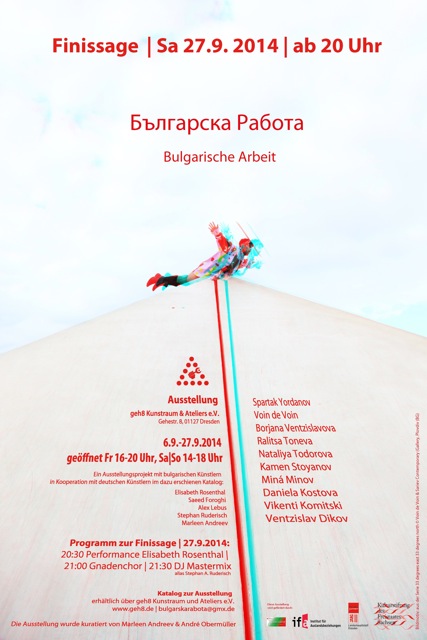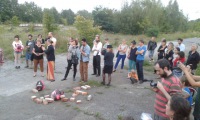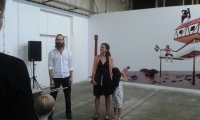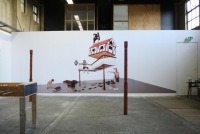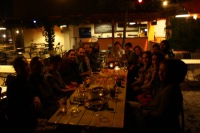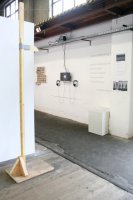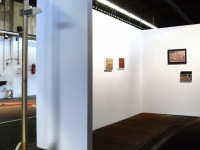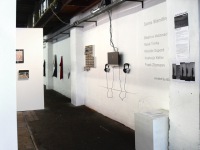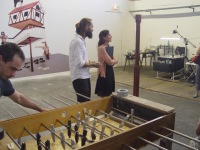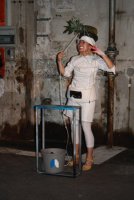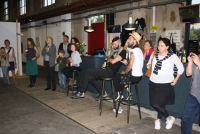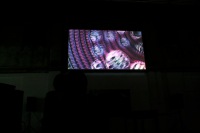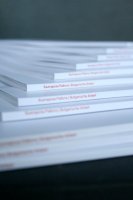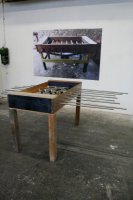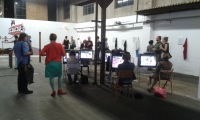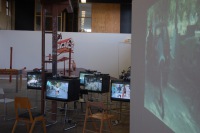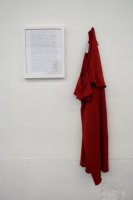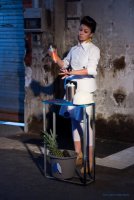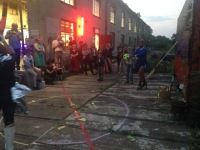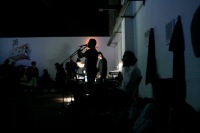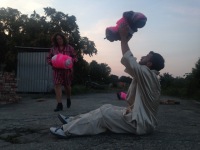Българска Pабота | Bulgarian Work
Ausstellungszeitraum: 6.9.-27.9.2014
Vernissage: Fr 5.9.2014, 17 Uhr
Scroll down for english version
Българска работа | Bulgarische Arbeit
ein Ausstellungsprojekt mit bulgarischen und deutschen Künstlern
Frank Zitzmann
Spartak Yordanov
Voin de Voin
Borjana Ventzislavova
René Trinks
Ralitsa Toneva
Nataliya Todorova
Kamen Stoyanov
Stephan Ruderisch
Elisabeth Rosenthal
Miná Minov
Béatrice Metzmacher
Daniela Kostova
Vikenti Komitski
Nastasja Keller
Alex Lebus
Saeed Foroghi
Nicolás Dupont
Ventzislav Dikov
Marleen Andreev
im geh8 Kunstraum & Ateliers e.V.
Gehestr. 8, 01127 Dresden
www.geh8.de
5.9.-27.9.2014
geöffnet Fr 16-20 Uhr, Sa/So 14-18 Uhr
oder nach Absprache
Vernissage | Fr 5.9.2014 | 17 Uhr
18 Uhr Begrüßung und einleitende Worte der Kuratoren
19 Uhr Performance “LOOSeUROPA”
von Voin de Voin & Nataliya Todorova
21 Uhr Video- & Soundperformance “Macrostation”
von Spartak Yordanov, Ralitsa Toneva & Ventzislav Dikov
Symposium | Sa 6.9.2014 | 17 Uhr
Ausstellung ist zum Galerienrundgang am 6.9.2014 ab 16 Uhr geöffnet
17 Uhr Performance “LOOSeUROPA”
18 Uhr Symposium mit den Künstlern und der Kuratorin Ilina Koralova
21 Uhr “Macrostation” Video- & Soundperformance
Finissage | Sa 27.9. 2014 | 18 Uhr
Die Ausstellung wird kuratiert von Marleen Andreev & André Obermüller
„Bulgarska Rabota“, zu deutsch: „bulgarische Arbeit“, ist – so neutral es klingen mag – im Bulgarischen ein Sprichwort, das von Bulgaren ironisch auf sich selbst angewandt wird. Und das nicht immer humoristisch. Es beschreibt umgangssprachlich Dinge oder Situationen, die in ihrer eher improvisierten und auf Funktionalität ausgerichteten Machart zwar gut gemeint sind, am Ende jedoch schlicht kurios erscheinen und so als Provisorium interpretiert werden müssen, welches keine lange Lebensdauer vermuten lässt.
Was wir wissen über das Land Bulgarien
Es ist in der medialen Landschaft wohl eher unterrepräsentiert. Und wenn uns ein Einblick gewährt wird, dann durch Schlagzeilen über Armut, fragwürdige Finanzpolitik, Korruption, beängstigende Wortungetüme wie „Armutsmigration“ und aktuell das Machtvakuum nach der Selbstauflösung der Regierung Orescharski.
Und nun eröffnen wir, die Ausstellungsmacher, diese Ausstellung mit einem Schlagwort, das diese Missstände offenbar noch unterstreicht. Wie kommen wir dazu? Und das in Deutschland, dem Land der Perfektionisten.
Wie steht es mit der Kunst im Land?
Hier sollen natürlich hier keine Vorurteile geschürt werden. Diese Einleitung will – auch wenn es erstmal anders scheint – einer medienbasierten Praxis der Meinungsbildung und der leichtfertigen Akzeptanz eines Stigmas entgegenwirken, das so schlicht nicht mehr haltbar, geschweige denn zeitgemäß ist. Der Fokus liegt auf jenen Lesarten von „bulgarischer Arbeit“, die eine kritische und nachhaltige Meinungsbildung ermöglichen. Nicht nur in Bezug auf Bulgarien selbst.
Wer sich die jungen Künstler des Landes genauer anschaut, erkennt schnell, dass es sich keineswegs um halbgare oder maximal „gut gemeinte“ Ansätze handelt. Es sind präzise, selbstbewusste, bestechend ehrliche und vorwärts gerichtete Positionen, die ein tiefes Bewusstsein für die eigene Kultur und dessen Verortung im internationalen Kontext ausstrahlen. Die für den kulturellen Austausch positive Konsequenz ist die offensichtliche Notwendigkeit, die physischen Grenzen zu überwinden und im Ausland tätig zu sein. Eindeutig negativ wird sie, wenn man die Abwanderung von Künstlern aus dem Land betrachtet. „Bulgarische Arbeit“ im sprichwörtlichen Sinne kann nach der Auseinandersetzung mit der jungen Szene des Landes nicht mehr nur auf das im Wort enthaltene Land Bulgarien bezogen werden.
“Bulgarische Arbeit” meint die Fähigkeit zur konstruktiven Selbstkritik, der Fokussierung eigener Unfähigkeiten und Ursachenforschung und schwebt als Sinnbild für bittere Kritik an politischem Kalkül, hierarchischer Systemzeichnung, selektiver Selbstwahrnehmung aber eben auch für das Potenzial des Dialogs über allen internationalen Beziehungen.
Bulgarische Arbeit in Dresden
Die Ausstellung will einen Übersetzungsversuch von „bulgarischer Arbeit“ wagen: Dresdner Künstler werden sich dieser Thematik annähern und einen Beitrag leisten. Nicht in Form eines Exponats in der Ausstellung, sondern vielmehr konzeptionell. Der für die Ausstellung konzipierte Katalog wird diese Arbeiten bzw. Arbeitsentwürfe ergänzend aufnehmen und mit den Arbeiten der bulgarischen Künstler in Beziehung setzen.
Im Symposium am Tag nach der Eröffnung werden die Themen in Anwesenheit der Künstler besprochen. Auch dazu laden wir sie herzlich ein.
Landeshauptstadt Dresden, Amt für Denkmalschutz
Kulturstiftung des Freitsaates Sachsen



Unterstützt von:
Deutsch-Bulgarische Gesellschaft Dresden e.V.

ENGLISH
Българска работа | Bulgarian Labor
an international exhibition project in cooperation with German artists
Frank Zitzmann
Spartak Yordanov
Voin de Voin
Borjana Ventzislavova
René Trinks
Ralitsa Toneva
Nataliya Todorova
Kamen Stoyanov
Stephan Ruderisch
Elisabeth Rosenthal
Miná Minov
Béatrice Metzmacher
Daniela Kostova
Vikenti Komitski
Nastasja Keller
Alex Lebus
Saeed Foroghi
Nicolás Dupont
Ventzislav Dikov
Marleen Andreev
at geh8 art space & studios e.V.
Gehestr. 8, 01127 Dresden
www.geh8.de
6.9.-27.9.2014
open on Fri 16:00-20:00, Sat / Sun 14:00-18:00
or by appointment
Opening | Fri, 09/05/2014 | 17:00
18:00 Welcome and introductory words of the curators
19:00 Performance “LOOSeUROPA”
of Voin de Voin & Nataliya Todorova
21:00 Video & Sound performance “Macrostation”
of Spartak Yordanov, Ralitsa Toneva & Ventzislav Dikov
Symposium | Sat, 06/09/2014 | 17:00
Exhibition is open for the gallery tour on 06.09.2014 from 16:00
17:00 Performance “LOOSeUROPA”
18:00 Symposium with the artists and the curator Ilina Koralova
21:00 Performance “Macrostation”
Closing Reception | Sat 27.9. 2014 | 18:00
curated by Marleen Andreev & André Obermüller
“Bulgarska Rabota”, translates in English as “Bulgarian labor”, which as neutral as it may sound, is a Bulgarian saying that, ironically, is used by Bulgarians to refer to themselves, and not always in a humorous manner. It colloquially describes things or situations that, while well intentioned, appear in the end as simply curious due to the improvised approach and final form that stems solely from function and immediacy. The solution then, without consideration for longevity or a larger context, must be interpreted as a provisional and short-sighted means to an end.
What we know about Bulgaria
Bulgaria is arguably under-represented in the media landscape. And if we are allowed a glimpse, then it is from headlines about poverty, questionable financial policies, corruption, dysphemisms such as “poverty-driven migration”, and currently the lack of political perspective after the dissolution of the government Orescharski.
And now we, as curators, open this exhibition with a catchphrase that is an effort to underline these grievances. How did we come to this idea? Especially in Germany, the land of perfectionists.
What about the country’s art scene?
Of course our aim is not to stir prejudices. Rather, this introduction is meant to counteract a media-based practice of formulating opinion as well as the facile acceptance of a stigma that is neither tenable nor contemporary. We put the focus on interpretations and meanings of “Bulgarian Labor” that enable a critical and sustainable opinion, one that is not only with regard to Bulgaria itself.
Upon closer look at the young artists of Bulgaria, one quickly realizes that their approaches are never underdeveloped nor merely “well-intentioned”. Their positions are precise, confident, honest and forward, while emanating a deep awareness of their own culture and its positioning in an international context. Although working abroad has positive consequences in terms of culural exchange, the need for Bulgarian artists to sustain a living has the negative that there exists an exodus of artists from this country. Following critical analysis of the young art scene, “Bulgarian labor” in a proverbial sense can no longer refer solely to Bulgaria.
“Bulgarian labor” has evolved to stand for the ability for constructive self-criticism, focusing one’s inabilities and investigating their causes. The phrase has expanded beyond inclusion of bitter criticism of political calculus, a hierarchical system design, and selective self-perception to now include the potential of dialogue. The potential of dialogue from international relations and is symbolic of bitter criticism of political calculus, a hierarchical system design, and selective self-perception.
“Bulgarian labor” in Dresden
The exhibition is an attempt to translate “Bulgarian labor”, and in doing so Dresden artists will converge on this issue and develop a conceptual contribution to the exhibition. These complementary works, or working drafts, that result from the the dialogue and artistic relationship between the artists of both countries will also be included in the exhibition catalog. We cordially invite you to the Symposium the day following the opening, during which the main issues are going to be discussed with the artists.
Landeshauptstadt Dresden, Amt für Denkmalschutz
Kulturstiftung des Freitsaates Sachsen



Supported by:
Deutsch-Bulgarische Gesellschaft Dresden e.V.

bulgarische arbeit from DRESDENEINS.TV on Vimeo.
